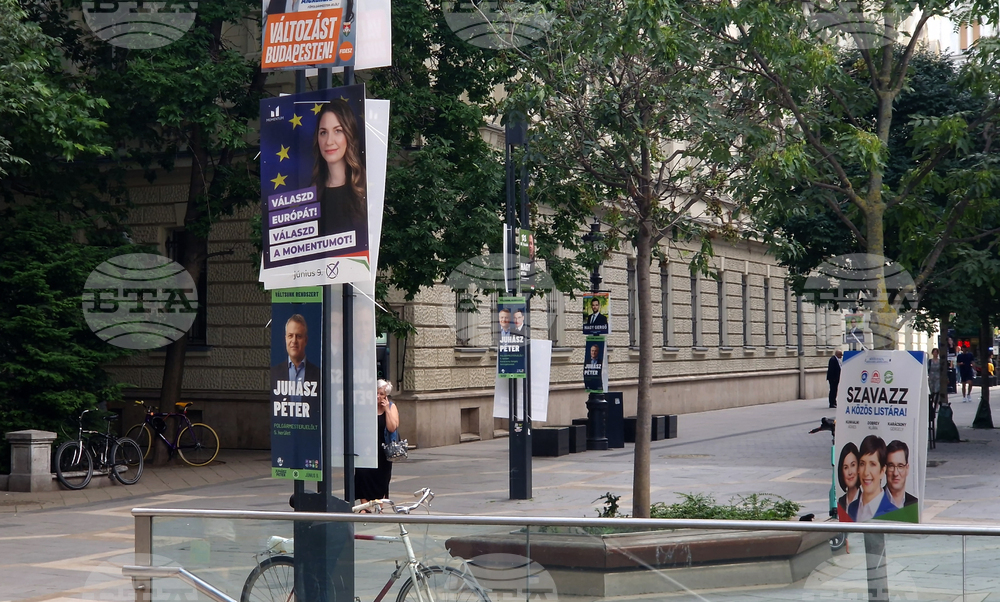site.btaHungarians Will Vote for Change on June 9


Hungarians are preparing to vote for change on June 9, when the country is holding elections for the European Parliament. This year for the first time they coincide with local elections, as well as the vote for self-government of the 13 national minorities.
Speaking to BTA, young people and politicians said they will go to the polls because voting is important for the future. This opinion is shared by 22-year-old Marta, who on Friday morning was going to lectures at the university where she studies communications, and of Hungarian veteran politician Geza Jeszenszky, former foreign minister (1990-1994) in the first government after the democratic changes.
In every EU country it is important to vote in the European Parliament elections because this is how citizens can influence politics and shape their future, Jeszenszky believes. For Hungary, this is extremely important, because the government rather strangely combined European Parliament and local elections into one, hoping to consolidate its popularity. Suddenly, however, Peter Magyar, a young, intelligent, very charismatic man, has appeared in politics. He has changed politics and the scenarios for the development of the situation after the elections, Jeszenszky told BTA.
Hungary needs an alternative, a change, he added. If the TISZA party wins Sunday's elections, he said, it will convince many voters in the country that there is an alternative. Because for the last fifteen years many Hungarians have been saying to themselves - Orban has many flaws, but there is no alternative. And now there seems to be an alternative and that is why these elections are very important in Hungary, Jeszenszky believes. He said Hungarians should either bet on change or continue to support the government, which he said is "pro-Russian, pro-Chinese and a very problematic member of the EU and NATO".
"Many people say that Hungary has become a Trojan horse in NATO, which is unforgivable, it is a denial of our history from the late 1980s and early 1990s under the regime change", Jeszenszky said. He was among the founders of the Hungarian Democratic Forum, which participated in Hungary's first democratically elected government after the changes. He is a student of Jozsef Antall. After leading Hungarian diplomacy, historian Jeszenszky was Hungary's ambassador to the United States, then to Norway and Iceland.
“European elections are a priority, even if sometimes you are not motivated. Even if you do not sympathize with some of the candidates, I think we should use our right to vote,” the student Marta told BTA.
Budapest is preoccupied with everyday life on a hot Friday before Sunday's vote. Everywhere on the streets and in public places there are campaign materials of the candidates for the European Parliament and for the local government.
Posters of the ruling party Fidesz oppose its leader Viktor Orban and billionaire philanthropist George Soros. Orban often refers to him in his speeches as the initiator and driver of the policy of the "warmongers", as he describes his domestic and foreign opponents. "No to war" is a key message in the Fidesz campaign for the European elections.
In Sunday's elections, Hungarians will elect 21 MEPs. A total of 11 parties are registered to take part.
/PP/
news.modal.header
news.modal.text